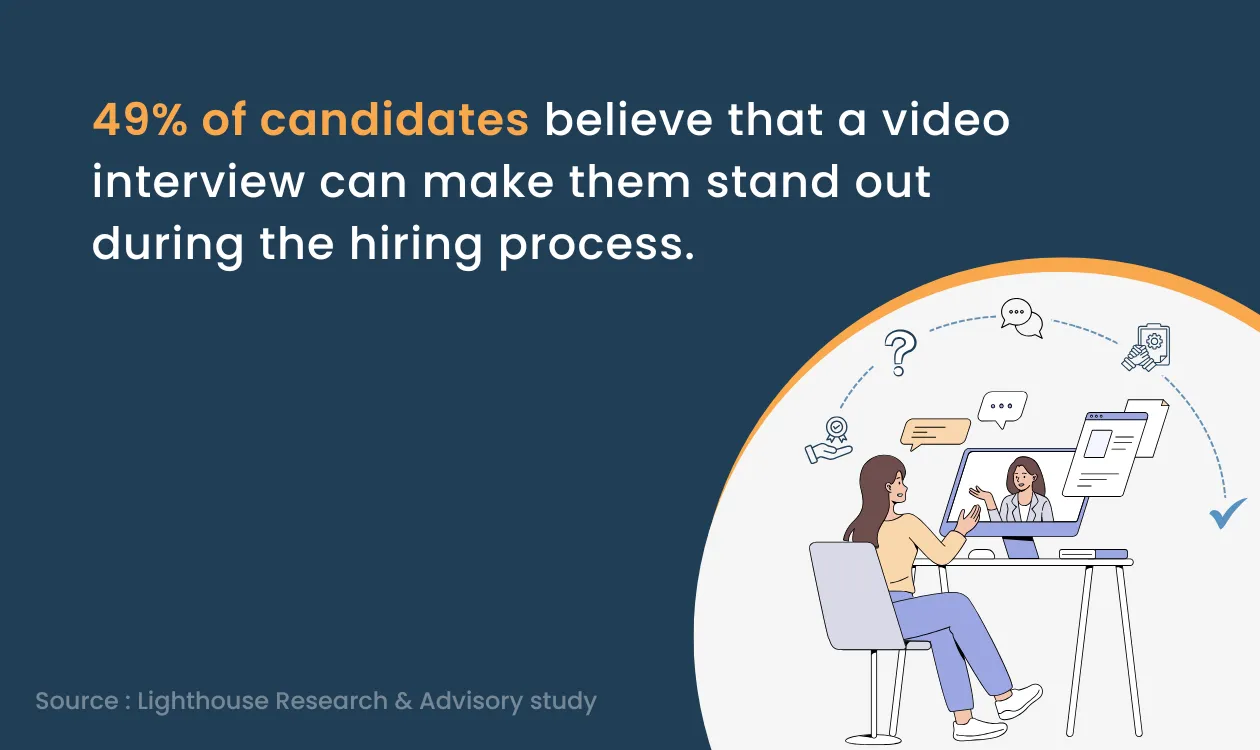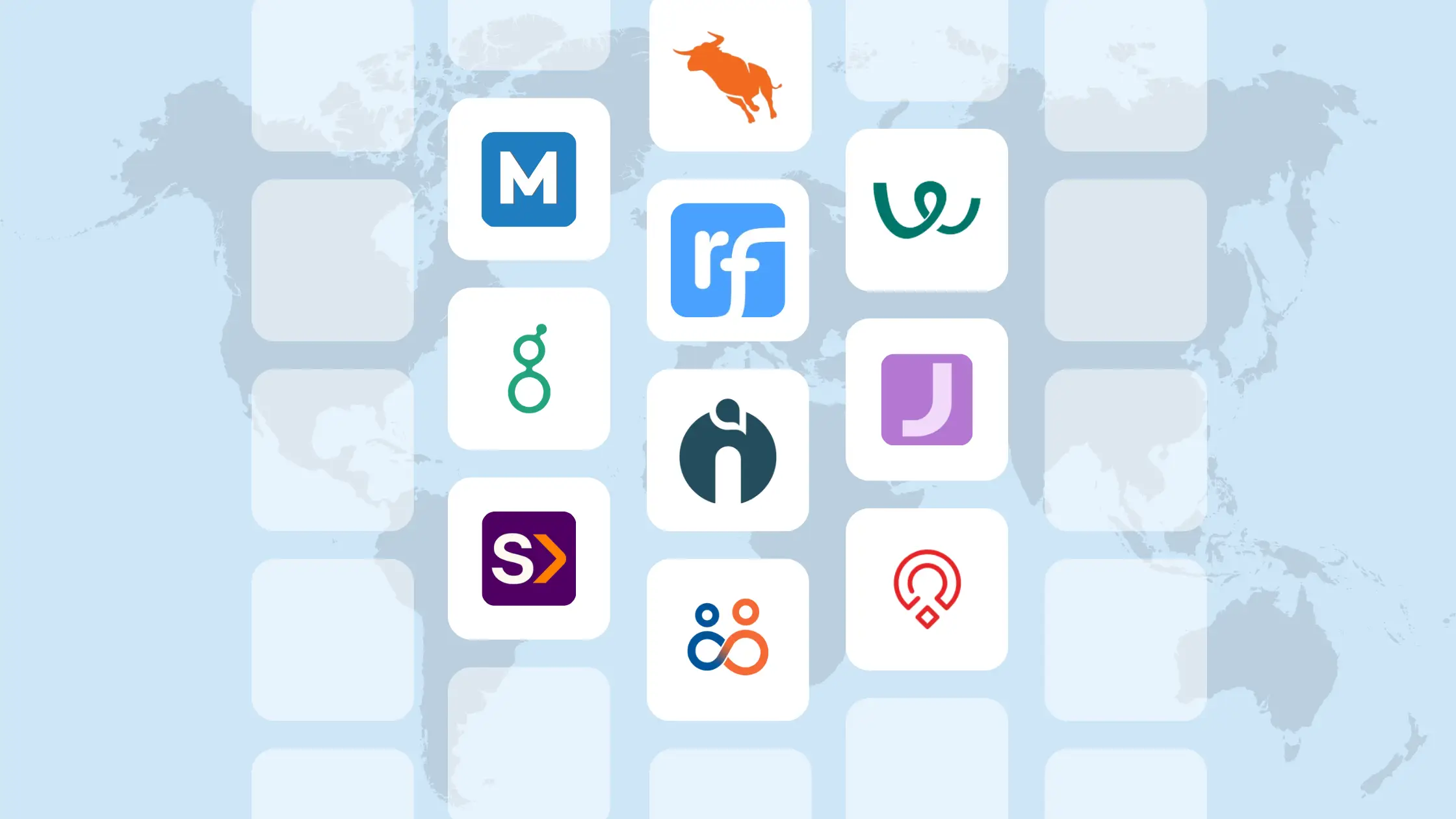Recruiting CRM, or Candidate Relationship Management software, plays a crucial role in modern recruitment by helping organisations manage and nurture relationships with candidates. It streamlines the recruitment process, enhances candidate engagement, and ensures a better hiring experience.
But what is a CRM integration, and why does it matter? CRM integration refers to the process of connecting CRM tools with other platforms and applications, enabling seamless data sharing and workflow automation. These integrations amplify a Recruiting CRM's potential by allowing tools to work together harmoniously, enhancing efficiency and improving overall productivity. By integrating Recruitment CRM Tools with platforms like LinkedIn, Slack, and other applications, recruiters can create a unified and efficient recruiting process.
Why Are Integrations Important in Recruiting CRM?
Integrations Important in Recruiting CRM can’t be overstated, as they are the backbone for creating a seamless recruitment process. These integrations for recruiting CRM help in the following:
-
Making things faster by automating tasks like updating candidate information or setting up interviews.
-
Keep all candidate data in one place so recruiters can make better decisions.
-
Allows the team to collaborate efficiently and stay informed about the hiring progress.
-
Provide better candidate experiences by enabling quicker responses and tailored interactions.
By implementing a robust CRM integration strategy, companies can transform their recruitment processes, making them more efficient and candidate-friendly.
Top Integrations for Recruiting CRM
1. Sourcing and Talent Acquisition
Recruitment CRM tools with integrations for sourcing candidates are essential for finding and attracting top talent. These tools automatically gather candidate profiles from social media, job sites, recommendations, events, and your website. This saves time by avoiding manual data entry, so recruiters can concentrate on choosing the right candidates. By putting all candidate information in one place, these recruitment integrations help recruiters find a more extensive and varied group of people, which is important for successful hiring.
Tools:
-
LinkedIn Recruiter: Syncs profiles directly into the CRM.
-
SeekOut: Provides AI-driven talent discovery.
-
AngelList: Sources startup-focused candidates.
2. Communication Tools
In today's competitive job market, talking to potential candidates is crucial for finding and retaining the best people and making good hiring decisions. Almost all candidates (81%) want employers to keep them updated on the status of their applications. How well you speak to your candidates determines whether they accept your offer or seek another job.
To give candidates a great experience they will remember, recruiters need to understand their path and provide smooth, well-planned candidate communication at every step of the hiring process.
Tools:
-
WhatsApp Business API: Enables real-time messaging.
-
Zoom: Allows you to chat, share your screen, and have video conferences with multiple people.
-
Slack: Designed for one-on-one and channel-based instant messaging.
3. Interview Management
Scheduling interviews is often a slow and frustrating part of hiring. It takes a lot of time to check everyone's availability and arrange a time that works for both the interviewers and the candidate. This often involves many phone calls or emails. Automated interview scheduling can help by connecting efficiently with the hiring team's calendars, like Google Calendar or Outlook. This makes sure everyone's free time matches up and suggests good times for the candidate. Handling interview times and dealing with missed appointments can be difficult. These integrations for recruiting CRM simplify scheduling and ensure smooth interview management.
Tools:
-
Calendly: Simplifies automated scheduling sequences with just a few clicks.
-
Intervue: Provides features like automated reminders, personalised communication, and self-service portals.
-
HireVue: Allows the setting of rules for each open role for smooth scheduling coordination.
4. Assessment Tools
Assessing candidate skills is a critical part of recruitment. According to the U.S. Department of Labour, the average cost of a bad hire is up to 30% of the employee’s first-year earnings. Integrating candidate assessments (whether for technical skills or general abilities) in your hiring process helps you choose better candidates. This way, you can go beyond looking at resumes and phone interviews and focus on tests that make it easier to find qualified people. By integrating assessment tools with your Recruiting CRM, recruiters can evaluate candidates directly on the platform, saving time and ensuring everyone is judged fairly.
Tools:
-
Codility: Facilitates technical skill assessments.
-
HackerRank: Tests coding proficiency.
-
Pymetrics: Provides soft skills evaluation.
5. Document Management
Managing candidate documents can be cumbersome without proper tools. Employee documents and complex workflows such as onboarding and offboarding can be improved using a robust and customisable document management system as a document store and process automation tool. Manually managing and tracking documents can lead to errors. Hence, integrating document management software with Recruiting CRM ensures that all contracts, resumes and other documents are stored securely and can be accessed instantly.
Tools:
-
DocuSign: Enables e-signatures free anytime, anywhere, from any device.
-
DocuWare: Provides provides digital document management and automated workflow solutions
-
Dropbox: Offers seamless file sharing.
6. Analytics and Reporting
Is there such a thing as too much data? In hiring, details like how often people open emails, how many respond, or how many unsubscribe can be very useful. Other essential data includes how many people visit your career website, how many apply for jobs, and how well-qualified the applicants are. Information about how many candidates move through the hiring process and how well your hiring team is doing can give you a better understanding of how successful your recruitment efforts are. Metrics like which job boards work best, how well you’re meeting diversity goals, how long it takes to hire someone, and other key performance indicators are also critical.
Data-driven decisions are at the heart of modern recruitment. By integrating analytics tools with a Recruiting CRM, recruiters can learn about hiring trends, check how well their hiring efforts are doing, and optimise candidate pipelines. This integration of tools solves problems like having separate data and spending too much time on manual reports, making it easier to make smart, strategic decisions.
Tools:
-
Lattice: Lattice offers a unique recruitment analytics approach focusing on performance management.
-
Starred: Best-in-class candidate experience analytics.
-
Tableau: Monitor the efficiency of various hiring channels, understand candidate trends, and improve team productivity.
7. Background Check
Background checks are a significant part of hiring someone new. They help us learn about a person's work experience, skills, and education before we invite them for an interview. Staffing agencies and hiring professionals have the right to know more about applicants as they hope to create a safe, productive workplace for current and potential employees. Using these checks with the Recruiting CRM tool makes the process faster and more complete, which helps us hire people sooner and follow the rules.
Tools:
-
Checkr: Provides automated background screening.
-
HireRight: Delivers global screening solutions.
-
GoodHire: Ensures compliance-focused checks.
8. Video Interviewing
Online hiring is very popular, so having good tools for video interviews is essential. A study by Lighthouse Research & Advisory found that 49% of candidates believe a video interview can make them stand out during the hiring process. Integration of video interviewing seamlessly into your recruitment workflow is crucial to meeting the demands of today’s candidate-driven market.
Organisations now use a standard method to screen or conduct first-round interviews and ensure a fair, efficient, and structured process. Integrating these tools with Recruiting CRM enhances scheduling and recording capabilities for more structured evaluations. Scheduling conflicts and location constraints are resolved, ensuring smoother interview processes.
Tools:
-
Screening Hive: Advanced video interview software
-
Microsoft Teams: Provides integrated collaboration.
-
VidCruiter: Specializes in video interview software.
9. Voice Call Software
Voice communication is still a staple in recruitment. The ultimate aim of any recruiter is to find prospective candidates, move them through the hiring cycle, and land them on a perfect job opening. Integrating voice call software with Recruiting CRM allows recruiters to make and log calls directly, improving outreach efficiency. It helps increase the productivity of your recruitment team, enhance the candidate experience, save time, and allow recruiters to have more personalised conversations with every candidate. The need to switch between platforms for calls is eliminated, which will enhance recruiter productivity.
Tools:
-
RingCentral: Facilitates cloud-based calling.
-
Aircall: Integrates calling with CRM.
-
Dialpad: Supports AI-enhanced voice communication.
10. AI for Recruiters
AI can help with every part of the hiring process, making recruiters' jobs easier and more efficient. AI tools can do things like read resumes, predict who might be a good fit, screen candidates, match them to jobs, and keep them interested. By using these integration tools with Recruiting CRM software, recruiters can make quicker and better decisions about who to hire.
Tools:
-
Tombo AI: Finds the personal emails & phones of candidates and creates highly personalised emails
-
Popp AI: Eliminate manual recruitment tasks by automating conversations.
-
Lusha: Improves candidate data accuracy.
11. Onboarding Tools
Onboarding is a critical stage in the recruitment process. Onboarding software can bring many advantages to your recruiting process, such as saving time and money, improving compliance and security, enhancing employee experience, boosting retention and performance, and increasing visibility and accountability. Integrating onboarding tools with Recruiting CRM ensures a seamless transition for new hires, improving their knowledge and reducing drop-offs. Onboarding integrations can also handle tasks like new employee paperwork, training, and other processes inside the CRM.
Tools:
-
Click Boarding: Enables employers to automate the smooth transition processes for new hires into the workplace.
-
Sapling: Provides automated onboarding templates.
-
Enboarder: Create personalised onboarding experiences.
12. Job Distribution Platforms
Posting jobs across multiple platforms is time-consuming. Stop wasting time posting to tens of job boards manually; instantly advertise your vacancies to various job boards, social media, and your website. Integrating job distribution tools with Recruiting CRM automates postings and tracks performance metrics, increasing job visibility and efficiency.
Tools:
-
Appcast: Helps employers reach qualified candidates across a variety of channels.
-
Indeed: Tracks job application performance.
-
Broadbean: Automates multi-channel job posting.
13. Employee Referral Tools
Employee referrals are a great way to find new workers. Using referral tools with a Recruiting CRM makes this process easier and helps you see how well your referral programs are doing. Share job openings on social media with a simple platform, which allows more people to see them and makes your referral efforts more successful. Check your referral program's progress with a clear dashboard that shows real-time information and results. Referral tools help you keep track of and manage employee referrals, often resulting in better hires.
Tools:
-
RolePoint: Manages employee referrals.
-
Teamable: Boosts referral engagement.
-
Zalp: Calculate the ROI of the Referral Program.
14. Candidate Engagement Tools
In today’s competitive marketplace, the best candidates get snapped up quickly, so engaging with candidates in their preferred communication channels is essential. Candidate Engagement tools empower you to leverage the efficiency and convenience of platforms like WhatsApp and text messaging from within your ATS. The result? A higher open and fast response rate leads to a streamlined candidate journey, an optimised hiring process, and engaged candidates. Candidate disengagement is a common issue. These tools ensure regular follow-ups and updates to keep candidates interested.
Tools:
-
TextRecruit: Enables SMS outreach.
-
Source Whale: Provides all you need to engage with ideal prospects in one platform.
-
HubSpot: Provides CRM-driven engagement strategies.
Best in Class Integration with iSmartRecruit Recruiting CRM
iSmartRecruit is known for its strong ability to connect with other tools, which helps make hiring easier and more efficient. It can find candidates on platforms like LinkedIn and schedule interviews using tools like Calendly. By linking with top solutions in the industry, iSmartRecruit provides a smooth hiring process.
Discover all the ways it can improve your hiring. Check out the Integration Page to see how iSmartRecruit works with other tools and helps your team hire better and quicker.
Conclusion
Integrating your Recruiting CRM with the right tools is no longer optional—it’s essential for staying competitive in today’s hiring world. From sourcing to onboarding, integrations enable recruiters to save time, improve collaboration, and deliver a superior candidate experience. If you’re ready to take your recruitment processes to the next level, explore the best integrations for recruitment CRM today.











